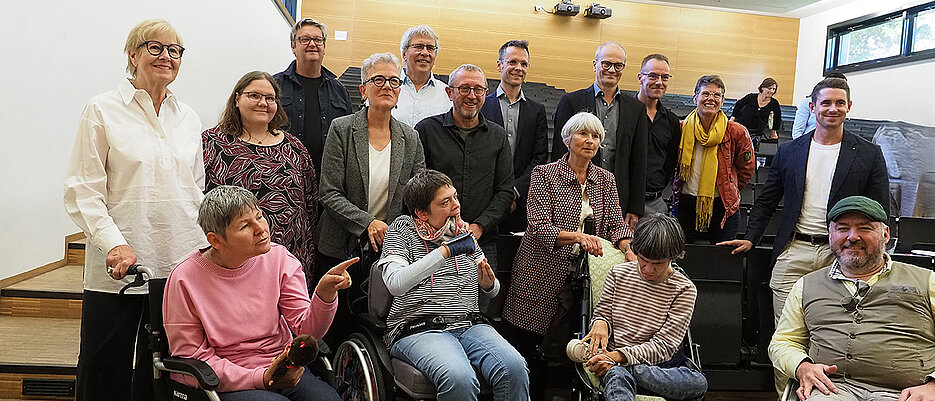A model project that is unique in Bavaria has been running in Klingenberg since 2021: four women with complex disabilities live together in a shared flat. What researchers say about the project.

People with complex disabilities usually live with their families or in residential homes. The situation is different for four women in Klingenberg (Landkreis Miltenberg): They have formed an outpatient supported living community since 2021. Such alternative forms of living are rare in Germany. The Klingenberg initiative is unique in Bavaria. It was only made possible as a pilot project because it was scientifically monitored.
The flat-sharing residents have social support networks at their disposal. These consist mainly of the parents, other family members and friends of the parents. In addition, there are the staff employed in the shared flat, who also work there at weekends and at night, as well as the employees of the day support centres, where the four women spend their time from Monday to Friday.
Funded by the Free State Ministry of Health
What is the quality of life of the women in the shared flat, what about the social participation and networking that they can achieve in their living environment and their community? What factors influence the quality achieved?
These questions were the focus of the three-and-a-half-year research project IWoK - Inclusive Living with Complex Disabilities. The Bavarian State Ministry of Health, Care and Prevention commissioned two scientists to work on the project: Professor Christoph Ratz from the Institute of Special Education at the University of Würzburg and Professor Peter Groß from the Evangelische Hochschule Darmstadt - University of Applied Sciences. Fabian Riemen, Christoph Ratz's doctoral student, was also part of the team.
The researchers presented their findings at an information event in the Würzburg university building on Wittelsbacherplatz on 18 September 2025.
High Subjective Well-being in the Shared Flat
"The data on quality of life allows us to estimate that the subjective well-being of the four women in their shared flat is high," says Christoph Ratz. There are also initial social contacts with the neighbourhood and a local club - this shows that social participation is possible. After moving into the shared flat, the women have not suffered any significant personal setbacks. On the contrary, they have developed positively.
However, the data also shows that the women's high level of dependence on everyday help leads to a high degree of heteronomy, even in the form of housing they have chosen themselves. Despite the high quality of life, the women have not yet been able to realise social inclusion in the community during the course of the model project, according to the researchers. This limits the quality of participation. The reasons for this include restrictions due to the Covid-19 pandemic.
The project also made it clear how challenging it is for people with complex disabilities to communicate their needs and interests in a clear manner. Here, the researchers see a need for specific further and advanced training to provide support professionals with even better training in communication techniques and working in the assistance model.
Ten Scientific Methods Used
How do people with complex disabilities feel, what needs and wishes do they have? "These questions are extremely difficult to answer using scientific methods," says Christoph Ratz.
For the project, the researchers have therefore developed a multi-method approach that attempts to integrate all relevant aspects. The ten methods, which aim to describe the qualities of networking, life and participation, include interviews with parents and other caregivers, participant observations and their interpretation by a council of experts and other stakeholders.
Science Prize From the "Leben pur" Foundation
In spring, the researchers received the 2025 Science Prize from the "Leben pur" foundation for their final report. Every year since 2018, the foundation has honoured high-quality scientific work that demonstrates a forward-looking improvement in the quality of life of people with complex disabilities.
The prize money of 5,000 euros came from the Wohnhilfe foundation. The award-winning scientists passed it on directly: they donated it to the Klingenberg women's flat share; it was used for new chairs.
What's next for the flat share? "We scientists have tried to describe the advantages and disadvantages of the model project as well as possible," says Christoph Ratz. Now it is up to the politicians to decide how to proceed.
Web links
Website (in German) of the IWoK project https://projekt-iwok.de/
Final report by the scientists (in German)
"Pure Life " science awards (in German)






